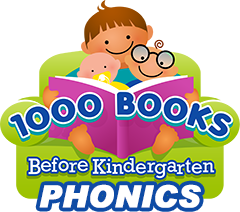Do parents really make a difference in the academic success of their children? Does the introduction of literary skills early in a child’s life predict academic success?
The answer is a resounding yes. Parents who work with their preschool children on literacy skills better prepare their children for academic success.
According to the study due to varying home environments, children enter school with different levels of learning skills.
Parental involvement at an early age in children’s literacy development is very important for school success. Young elementary–aged children who have higher levels of parental involvement, such as parents attending workshops about literacy and parents encouraging literacy activities at home, show greater literacy growth than students whose parents are not as involved (Leslie & Allen, 1999).
Carroll, Crystal Jayne, “The Effects of Parental Literacy Involvement and Child Reading Interest on the Development of Emergent Literacy Skills” (2013).
Children’s early reading skills, in part, determine the child’s overall success in school. Parental involvement in promoting language and literacy is therefore crucially important in academic success. Even simple skills such as learning the alphabet and letter sounds are vital.
There is evidence that increased exposure to letter names and sounds predict children’s knowledge of other emergent literacy skills. For example, Crain–Thoreson and Dale (1992) selected twenty-five children, who had verbal precocity skills at 20 months of age, for a longitudinal study investigating predictors of later language and literacy skills. Exposure to instruction in letter names and sounds significantly predicted children’s knowledge of print conventions, invented spelling, and phonological awareness at age 4 ½.
While there is no “wrong” way to read to your child the more engaged you make the child when reading a story the better. Research shows that by making reading interactive, just as asking the child questions and giving positive feedback the child will get more out of story time and be a more successful reader. According to one study:
parent–child story reading sessions need to consist of (1) questions prior to reading to prepare the children for the story; (2) verbal interactions between the adults and the children that relate the story to experiences familiar to the child, (e.g., asking questions, relating content to present and past experiences); (3) questions presented after the story that elicit evaluative responses from the children for they help children learn to assess, evaluate, and integrate, and (4) positive reinforcement of the children’s responses.
Parents really do make a difference in the future success of their children. Encourage reading. Ask questions. Get excited for story time. And of course, have fun.

